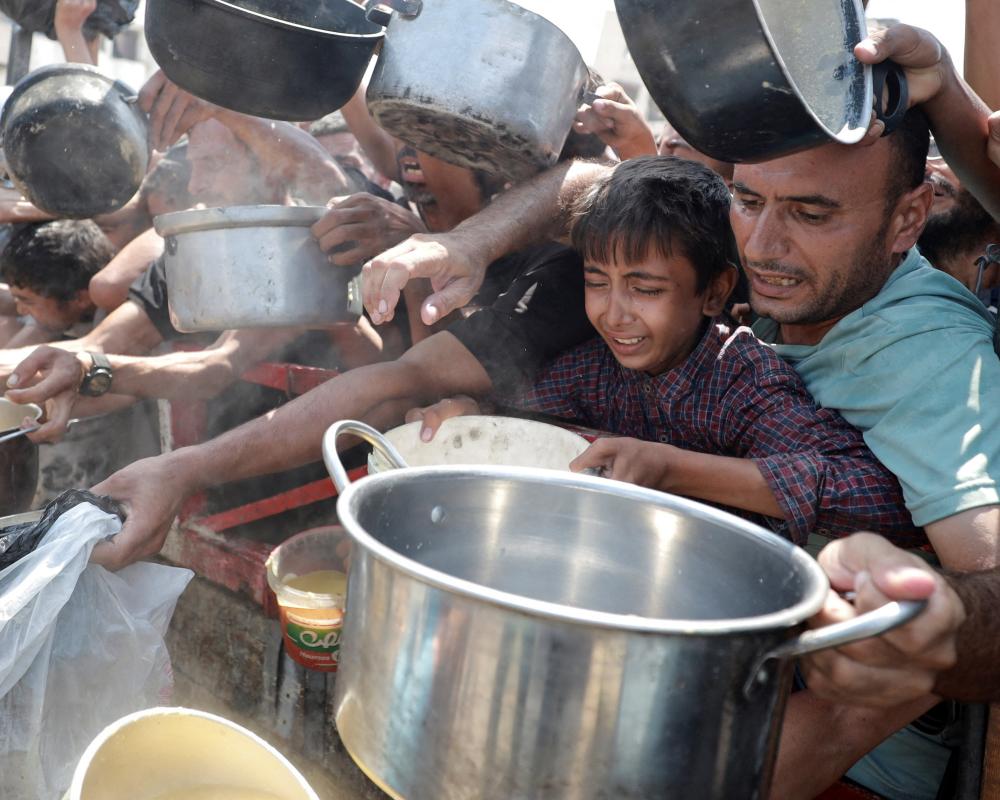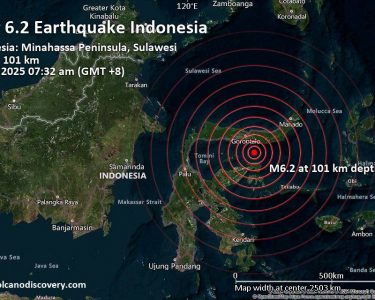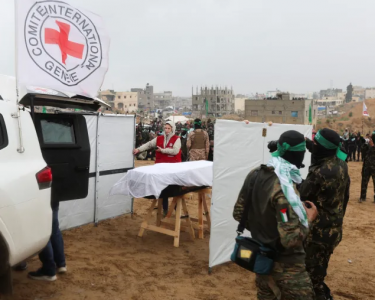
ROME, July 30 (NNN-AGENCIES) — UN-backed experts warned Tuesday that a “worst-case scenario” famine is “now unfolding” in Gaza that cannot be reversed unless humanitarian groups get immediate and “unimpeded” access.
The announcement came as health authorities in the Hamas-run territory said over 60,000 people have been killed in Israel’s nearly two-year offensive there, sparked by the militant group’s 2023 attack.
The Rome-based Integrated Food Security Phase Classification Initiative (IPC) said air-drops over Gaza, announced by various countries in recent days, will not be enough to avert the “humanitarian catastrophe”.
“The worst-case scenario of famine is now unfolding in the Gaza Strip,” said the IPC, a grouping of NGOs and institutions that serves as the world’s main monitor for gauging malnutrition, in a statement.
It said its “alert” did not amount to a declaration of a full-scale famine, but was intended to draw “urgent attention to food security” and “prompt immediate action”.
Urgent “unimpeded” humanitarian access into Gaza was the only way to stop rapidly rising “starvation and death”, it said.
UN humanitarian agencies said in a separate statement that Gaza was on the “brink of a full-scale famine” and called for donors to “flood Gaza with large-scale food aid, immediately and without obstruction”.
Israel imposed a total blockade on Gaza on March 2 after ceasefire talks broke down. In late May, it began allowing a trickle of aid to resume, amid warnings of a wave of starvation.
The IPC said its latest data shows that “famine thresholds” have been reached in most of Gaza and hunger-related deaths of young children were rising fast.
“Over 20,000 children have been admitted for treatment for acute malnutrition between April and mid-July, with more than 3,000 severely malnourished.”
Children under the age of five were dying of hunger, “with at least 16 reported deaths since 17 July”, IPC said.
“Mounting evidence shows that widespread starvation, malnutrition, and disease are driving a rise in hunger-related deaths.”
Israel on Sunday declared a “tactical pause” in army operations in parts of Gaza, saying more than 120 truckloads of food were allowed in, with some countries — such as Jordan and the UAE — dropping food into the besieged territory.
But besides posing a risk to civilians, air drops will be insufficient to “reverse the humanitarian catastrophe”, warned the IPC.
Delivering food by road is “more effective, safer and faster”, it wrote, also warning that the most vulnerable people suffering from acute malnutrition — including children — “need access to consistent life-saving treatment” in order to recover.
Following the IPC’s alert, the UN’s UNICEF, World Food Programme (WFP) and Food and Agriculture Organisation (FAO), warned “time is running out” in Gaza.
“People are starving not because food is unavailable, but because access is blocked… The right to food is a basic human right,” FAO Director General Qu Dongyu said in a joint statement with other UN aid agencies.
Speaking in Geneva, the WFP’s emergency director Ross Smith said the humanitarian disaster was reminiscent of last century’s famines in Ethiopia and Nigeria’s Biafra region.
“This is unlike anything we have seen in this century,” he told reporters.
The IPC said it was working on a new analysis to “urgently” publish new figures on Gaza.
The body issues an internationally-agreed definition for famine that is used to gauge the level of acute malnutrition in countries. — NNN-AGENCIES






